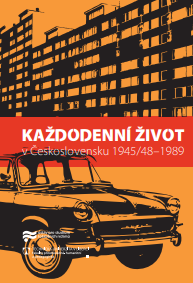Odborové rekreace v Československu v padesátých a šedesátých letech
Union recreation in Czechoslovakia in 1950s and 1960s
Author(s): Alžběta Čornejová
Subject(s): Political history, Social history, WW II and following years (1940 - 1949), Post-War period (1950 - 1989), History of Communism, Tourism
Published by: Ústav pro studium totalitních režimů
Keywords: Czechoslovakia; union recreations; 20th century; 50s; 60s; collective holiday; communism;
Summary/Abstract: This study analyzes the system of union recreations, a popular way of spending leisure time before 1989. It also focuses on the pioneer camps, which in mass numbers provided recreation in the countryside for children. The introduction also mentions the ways of care and support provided to the laborers by the Nazi regime, either through the Kraft durch Freude organization in the 1930s or the so called Heydrich recreational action in the time of the Protectorate of Bohemia and Moravia. The beginnings of the collectively spent holidays are connected to the immediate post-war period. In May 1945 the Central Union Council (ÚRO) became the main union institution authorized to take under its control all existing union associations and federations in the Czech countries. The first vacationers left for their holiday roughly during the same time. This was not one of the massive organized events; the vacationers were previous prisoners from concentration camps and Nazi penitentiaries. The organisation changed qualitatively and quantitatively after February 1948, when Central recreational department, later Central administration of recreational care ROH started to attend to everything connected to holiday. At the same time three basic types of a vacation were created: centrally operated and selected recreation (native or abroad), company vacation and since 1955 pioneer (child) recreation. The focus on the deserved rest after work became an important and constant part of the official propaganda. Recreations turned into a very desired article. More requested were the so called selected recreations, which were based on a number of properties, for example hotels confiscated from previous German owners or so called collaborators and traitors. New recreational facilities were constructed and vacations abroad were very popular since the sixties. The ideological under-meaning of the union organized vacation gradually dissipated and the collective cheap vacation remained. Smaller company chalets outfitted modestly were quite familiar to employees and their families. Pioneer camps helped the parents (especially mothers, whose employment rate rose considerably) to deal with a relatively long time of the school holidays. The union recreations remain till this day to a well known phenomenon of the previous regime. It was a cheap alternative to the vacation and for many people remained to be a sole opportunity to travel abroad. The theme of the recreations is getting more interesting every day, it is maybe caused by the evident nostalgia coming from many TV programmes.
Book: Každodenní život v Československu 1945/48-1989
- Page Range: 116-133
- Page Count: 18
- Publication Year: 2015
- Language: Czech
- Content File-PDF

